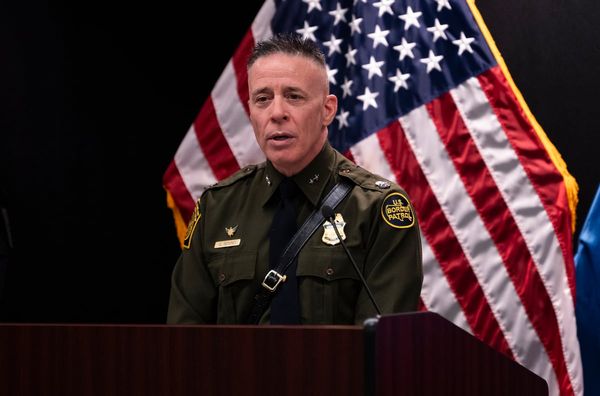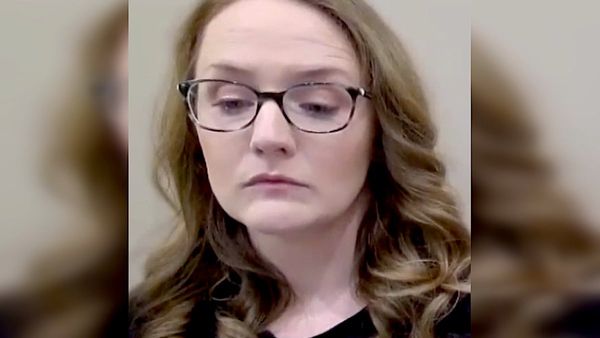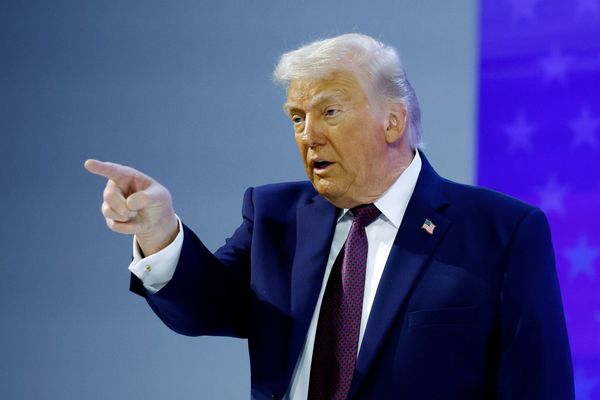
The referendum result was not a surprise but I felt hollowed out by the fact that Australia’s sentiment had been made so explicit. I didn’t want to go into town, I didn’t want to speak to people, I didn’t want to read airy excuses for what had happened.
I lost a great deal of respect for my country. I used to think that I could rock up to any fence post or bar and have a conversation with anyone about their dog, their kids, their ute. I had done that all my life and enjoyed that feeling of connection.
Now, I have this horrible sense that the majority of people don’t want me as part of their country. Other Aboriginal people have talked about the fact that they don’t feel as welcome, that they have fewer friends and are suspicious of some they had counted as friends. It is a terrible feeling.
In some communities 96% of Aboriginal and Torres Strait Islander people voted to be included in the Australian constitution. In others it was as low as 63% but overall it was a massive majority. How did the press manage to portray Aboriginal people as opposing our recognition as First Peoples of the land?
Don’t blame Peter Dutton, don’t blame Jacinta Nampijinpa Price and Warren Mundine, don’t blame the no campaign, Australia wasn’t swayed by those voices, instead it actively rejected the voices of Eddie Mabo, Vincent Lingiari, Cathy Freeman, Johnathan Thurston, Nicky Winmar, Evonne Goolagong, Deborah Cheetham, Warwick Thornton and thousands of others. It was OK to cheer them in the sports stadiums and theatres, to find their sovereign claims correct in law, but not good enough to listen to their gentle request for inclusion. Australia rejected the cogency of Aboriginal Australia.
More than 60% of Australians were hiding behind figures of straw to cast their no vote, having been provided the perfect camouflage. The Murdoch media enlisted, and then propped up, the straw figures and probably think their input was crucial, but if we think that and believe that the campaigns for either yes or no were significant we are crediting Australia with too much innocence, we are allowing them the defence of the abuser: Look what you made me do! I didn’t want to do it but you provoked me!
As some commentators have said, we now hold a unique position in the world. Not only are we the only first world colonial country not to have recognised the Indigenous people as the First People of the country, but we are the only one to have actively voted to refuse them that status. It is a very ugly prospect for the nation.
I looked at the Australian flags that had sprung up on fence posts and house gates the day after the referendum and it was like the country was signalling that it had won a war. No Australia, no, you just put a new lick of paint on the explorer’s statue, regilt the form of the colonial massacrist, the old lie reupholstered in royal cloth, but merely wrapping the same old corpse. That body will continue to rot and pullulate, soon to stain that rich brocade so that all the world will see our mendacity, our churlish meanness of spirit.
We can hide from it on our island of ignorance, pretend that we’ve got it all together, that it is the rest of the globe that has to learn from our practical reconciliation. No, Australia, no, all we have done is to hide from the facts of our history, our true character.
We had a chance to breathe deeply and call spades shovels, to start an adult dialogue, but we chose to gild the lie as heroism, as mateship, as can-do. The ulcer has already begun to seep through the rich cloth and we know we’ve shot the surgeon.
The sunshine is sour now.
It always amazed me that the natural instinct of the capitalist could be subdued with the bromide of that confected history. For decades overseas tourists have put Aboriginal experience at the top of their list of preferred Australian experiences and our capitalists have consistently failed to provide it lest we be forced to enter a conversation with Indigenous people about the past. Don’t mention the war.
Oh, there have been a few attempts but in 99% of cases the “history” is delivered by non-Indigenous people and often supplemented with racist jokes. I am pale skinned and, Australia, you say these things in front of me with a lurid smirk. I have waited decades for someone on the Great Australian Tour to object to the lazy blackfella joke, the nauseating lubra joke, but I have never heard anyone complain.
I usually comment on the smart alec ribaldry but the crowd inevitably turn their back or sneer; I’m spoiling the party. Haven’t I got a sense of humour?
No, I haven’t, and I find less and less to laugh about. The sunshine is sour.
In the aftermath of the 2023 Australian referendum respected commentators blamed Anthony Albanese for hubris or running a botched campaign.
I think the prime minister’s campaign team and members of the Uluru statement knew there were risks with taking the voice to a referendum rather than legislation but came to the view that only constitutional change could deliver certainty. Memories of John Howard watering down the Wik legislation to a shadow of its intent to deliver justice to Aboriginal people would have been prominent in planning meetings.
The other argument accepted by Albanese was, “If not now, when?” After 230 years when was the right moment? Michelle Grattan accused the prime minister of haste and causing Australia to become more divided. The federal opposition’s trenchant antagonism and crude and cruel misinformation didn’t cause that?
To imagine that Australia the innocent could have its purity of mind tricked and troubled into exposing a sentiment that under other circumstances they would refuse seems like a naive excuse for the national character.
Don Watson says Albanese should have read the room and, when it became obvious the referendum would lose, he should have changed tack, as if fulfilling a policy commitment was stupid politics. We all knew it was going down but instead of engineering a weak compromise that the next Howard, Dutton or Joyce could further dilute with their crocodile tears, Albanese honoured the Uluru statement from the heart.
Watson says this was politically wilful or naive but maybe there’s a positive benefit in Australia understanding exactly where we are as a people. Maybe there’s benefit in calling the Australian people to account, to confront them with the real nature of their character instead of continually offering an excuse for our failure to accept that the land of sun and beaches was won by theft, massacre and arrogance.
Unless we face that reality maybe we will continue to lecture Indonesia and China about their human rights. Perhaps the referendum campaign gives us the opportunity to come clean on the contact history of the country and with that knowledge we can really begin to close some gaps. The gaps of health, education and inclusion arise directly from the gap in our comprehension of the country’s colonial history.
The venality of Mundine and Price allowed Dutton to stay in the background merely stoking the fires of incendiarists. I can’t believe Australia was gulled by this tactic or confused by the complexity of a five-line statement that had been first proposed six years earlier. The then prime minister Malcolm Turnbull dismissed that statement he received on the morning of 30 June 2017. Don’t blame Dutton, Turnbull had the opportunity to change Australian history but under siege from the hard rightwingers of his Coalition he caved in, a decision I’m sure he wouldn’t repeat today.
There is a large group of conservative politicians who firmly oppose the view that Australia was stolen from a viable culture and robust political system and those politicians are supported by a large body of Australians who are smug in the belief that colonialism did no harm, carried no gun, no bag of poison. Price cunningly mouthed those very words to appeal to that mob but it is telling that the Aboriginal people of her own electorate rejected the furphy.
During the campaign I wore a yes badge the whole time. A yes poster was on the entry to my farm and I could tell by the sullen silence, and sometimes the sneering contempt, that many, many Australians could not accept that Aboriginal and Torres Strait Islander people warranted recognition as the First Peoples of the continent.
I noticed it in my home town, I saw it in airports, on the streets of four cities, Australia was digging in its heels to reassert that the country had been won in a bloodless takeover from a people too dumb to organise a resistance.
The colonial assumptions of the purity and honour of Australia’s occupation of this continent are seductive to the nation; we crave to belong to an honourable, sunny, fun-loving nation.
When confronted by some of the facts of the colonial frontier I have seen some of Australia’s sharpest minds scour those facts for a redeeming feature, so keen are they to maintain the myth of their sunny character. No, Australia, there is no redeeming feature. There were some brave Christians who objected to the greed and cruelty in the contact period of the colony but how did we, as a nation, treat the whistleblower. A fine but chilling book could be written about the fate of those souls.
I find it difficult to accept the myth of our sunny, knockabout, larrikin mischievousness. That person could only exist if he is never asked about his legitimacy. Then he becomes surly, so truculent that the sunshine sours.
I have lost the stamina to engage with that man. I hope my energy will return because committing unborn children to this nasty element of the national character would be unforgivable. We must provide the very best education for our children, all our children, the very best nurture and the very best protection from the venal and those for whom ignorance is a badge of honour, the character of the wild colonial boy.
I have grandchildren so I am determined to regain my composure, but right now I do not want to talk to those who failed so enormously to express the most basic level of generosity, instead believing that truculent denial was the stance of honour and intelligence.
In the fortnight since the referendum dozens of Aboriginal people have arrived at the farm, perhaps like me, avoiding the public domain, but all have mentioned the 39% who voted to include Aboriginal and Torres Strait Islander people in the national charter, the national character. We have to keep faith with those Australians and teach the young to accept a more realistic national history. Australian history is Aboriginal history and vice versa, there is no need to throw Phar Lap and Don Bradman out with the bathwater. We can still mourn the tragedies of Gallipoli and Vietnam but also talk frankly about the massacres at Myall Creek and Brodribb River.
A full, adult and deeply respectful conversation, where room and time is made for the sceptic but where hatred and cynicism will be seen as un-Australian. I still hope for Australia.
You can’t legislate for decency and tolerance, you have to teach it, sing it to the pregnant belly, speak it while fishing with children by the river, insist on it in the football crowd. After all we are the adults, we are the Australians and our history is not too difficult for us to understand. We will refuse to offer ignorance as an excuse, will refuse to allow our children to hate for the gratification of those who see justice in the gun and the poison bag.
We will build a just Australia.
• Bruce Pascao is a writer and farmer, and a Yuin and Bunurong and Tasmania man. His next book is called Yumburra and will be published in April 2024







